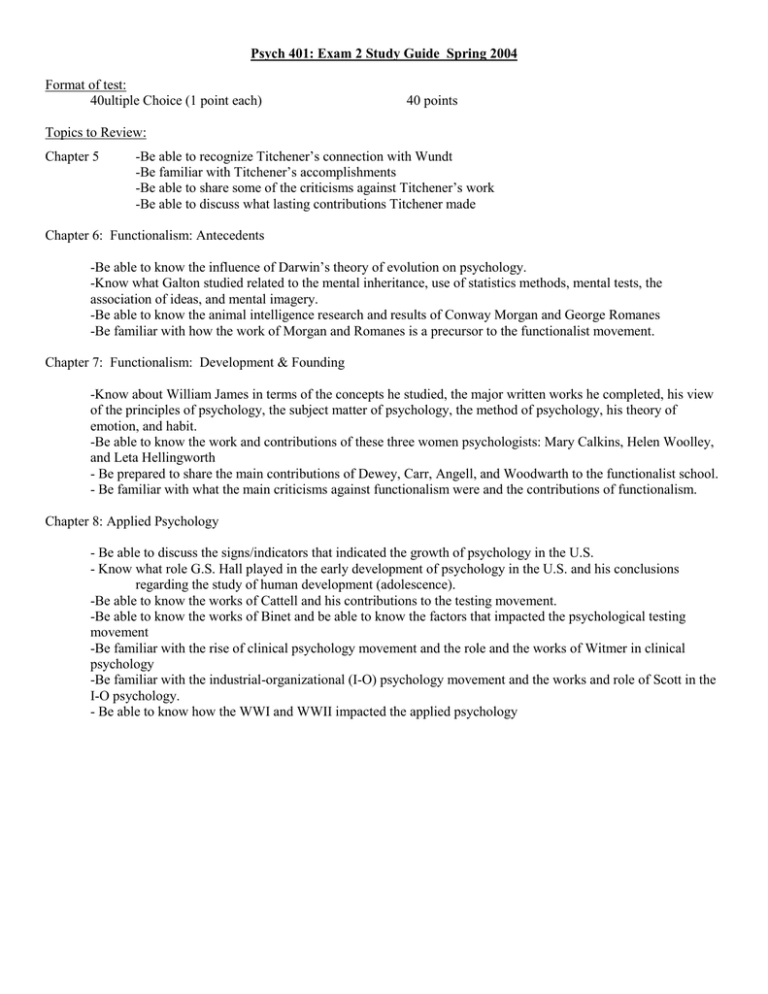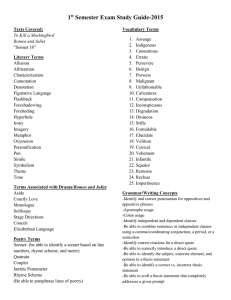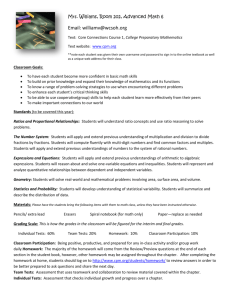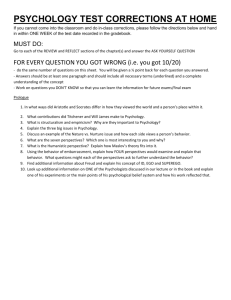Psych 401: Exam 2 Study Guide Spring 2004
advertisement

Psych 401: Exam 2 Study Guide Spring 2004 Format of test: 40ultiple Choice (1 point each) 40 points Topics to Review: Chapter 5 -Be able to recognize Titchener’s connection with Wundt -Be familiar with Titchener’s accomplishments -Be able to share some of the criticisms against Titchener’s work -Be able to discuss what lasting contributions Titchener made Chapter 6: Functionalism: Antecedents -Be able to know the influence of Darwin’s theory of evolution on psychology. -Know what Galton studied related to the mental inheritance, use of statistics methods, mental tests, the association of ideas, and mental imagery. -Be able to know the animal intelligence research and results of Conway Morgan and George Romanes -Be familiar with how the work of Morgan and Romanes is a precursor to the functionalist movement. Chapter 7: Functionalism: Development & Founding -Know about William James in terms of the concepts he studied, the major written works he completed, his view of the principles of psychology, the subject matter of psychology, the method of psychology, his theory of emotion, and habit. -Be able to know the work and contributions of these three women psychologists: Mary Calkins, Helen Woolley, and Leta Hellingworth - Be prepared to share the main contributions of Dewey, Carr, Angell, and Woodwarth to the functionalist school. - Be familiar with what the main criticisms against functionalism were and the contributions of functionalism. Chapter 8: Applied Psychology - Be able to discuss the signs/indicators that indicated the growth of psychology in the U.S. - Know what role G.S. Hall played in the early development of psychology in the U.S. and his conclusions regarding the study of human development (adolescence). -Be able to know the works of Cattell and his contributions to the testing movement. -Be able to know the works of Binet and be able to know the factors that impacted the psychological testing movement -Be familiar with the rise of clinical psychology movement and the role and the works of Witmer in clinical psychology -Be familiar with the industrial-organizational (I-O) psychology movement and the works and role of Scott in the I-O psychology. - Be able to know how the WWI and WWII impacted the applied psychology




